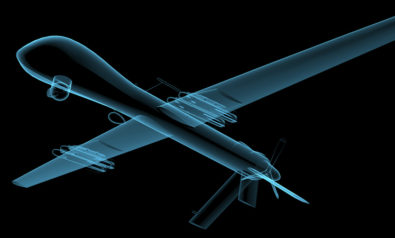Are we on the way to losing the distinction between virtual war and the preciousness of life?
Current calculations are such that America can no longer afford war as it has been waged in the past. Consider the numbers. Take a casualty in Vietnam, for example: At say 40% disabled, a corporal or a lieutenant, 23 years of age who lives to 80 will cost the United States government about $1 million in disability benefits before the veteran passes away, plus the cost of any and all medical care along the way. Not to mention that individual’s reduced productivity for the remainder of his life.
It’s hard to arrive at an exact cost without having more specifics for the wounded person, but if we add up the three costs above — the disability pension, the cost of health care from the Veterans Administration and the loss of productivity — a ball park figure might be around $3 million per casualty. That would be multiplied by 150,000 wounded in Vietnam. Meaning a total cost of about $450 billion for Vietnam veterans alone, which is not far removed from the annual US defense budget.
And then there are other peripherals. The wounded no longer come home in privacy. Nowadays, the coffin is often filmed for national media distribution and, given the complexities of wars overseas and America’s overall diminished appetite for any kind of risk, the body bags soon translate into political opposition for an incumbent administration.
The Other Side of the Equation
Now, let’s consider the other side of the equation. The US has the most sophisticated information and communication technology in the world by an insurmountable margin. It is disrupting every aspect of our sociology through the redefinition of community and through disintermediation of middle actors and mechanisms. It is spiraling and every dollar invested in it is a dollar invested in the sustenance of the hegemon. From time immemorial, the state, which owned the best technology, had an overwhelming advantage over emerging adversaries.
So, you be the judge: flesh and blood soldiers or drones and guided missiles.
What about the receiving end? Well, first off, they (missiles and the bombs) are “smarter.” As someone who has entered cities while they were still smoldering (Baghdad in 1991 and Belgrade in 1999), there is no comparison with the type of carpet bombing that preceded in Korea and Vietnam. Either for soldiers or civilians.
Is it the image of the technician in sandals and khakis, in his air conditioned cubicle in Florida dealing death far away, mostly on poor God forsaken souls who never really know what hit them? Seems inhuman. But is it really?
As to congested areas, there are limits (increasingly fewer) for the accuracy of new tech ordnance, but an infantry battalion moving through a town with M-16s kills far more indiscriminately.
If We Have It, We Will Use It
Inexorably, the US Army will increasingly wage all its wars on the back of new technology. And if human life and national treasure are the principal two metrics, then increasingly sophisticated technology appears better for the vanquisher and the vanquished alike.
Why then does this argument send a shiver up my spine? Is it the image of the technician in sandals and khakis, in his air conditioned cubicle in Florida dealing death far away, mostly on poor God forsaken souls who never really know what hit them? Seems inhuman. But is it really? Think back on the slaughter at Stalingrad in 1943 and rivers running red with the blood of apostates during Mao’s purges in 1969. Still we pause here with questions.
Does this 21st century technology make it easier to pull the trigger, theoretically and actually? Well, not now perhaps, with our Hamlet in the White House. But what about if/when a Dr. Strangelove assumes his place? Or if someone like Vladimir Putin, who is evidently not shuffling with a full deck, provokes catastrophe. And then again, technology is fragile. It can go “haywire.” It can get so far out in front of oversight (think NSA) that humans lose all control. William Butler Yeats said it best: “Turning and turning in the widening gyre/ The falcon cannot hear the falconer; / Things fall apart; the centre cannot hold.”
And then, finally, there is the constant imperative that if we have it, we will use it. Without “Live Fire,” the technology gets stale. At peace, you can never get the desired randomness to adapt the military technology successfully. In the end, it seems inevitable and vast resources will be used for both offense and defense, for both guided missiles and Iron Domes. And yes, I would bet that eventually the technology will exceed our ability to control it. Or, alternatively, we will become so forgetful of flesh and blood that we will lose the distinction between virtual war and the preciousness of life.
The views expressed in this article are the author’s own and do not necessarily reflect Fair Observer’s editorial policy.
Support Fair Observer
We rely on your support for our independence, diversity and quality.
For more than 10 years, Fair Observer has been free, fair and independent. No billionaire owns us, no advertisers control us. We are a reader-supported nonprofit. Unlike many other publications, we keep our content free for readers regardless of where they live or whether they can afford to pay. We have no paywalls and no ads.
In the post-truth era of fake news, echo chambers and filter bubbles, we publish a plurality of perspectives from around the world. Anyone can publish with us, but everyone goes through a rigorous editorial process. So, you get fact-checked, well-reasoned content instead of noise.
We publish 2,500+ voices from 90+ countries. We also conduct education and training programs
on subjects ranging from digital media and journalism to writing and critical thinking. This
doesn’t come cheap. Servers, editors, trainers and web developers cost
money.
Please consider supporting us on a regular basis as a recurring donor or a
sustaining member.
Will you support FO’s journalism?
We rely on your support for our independence, diversity and quality.



























Comment